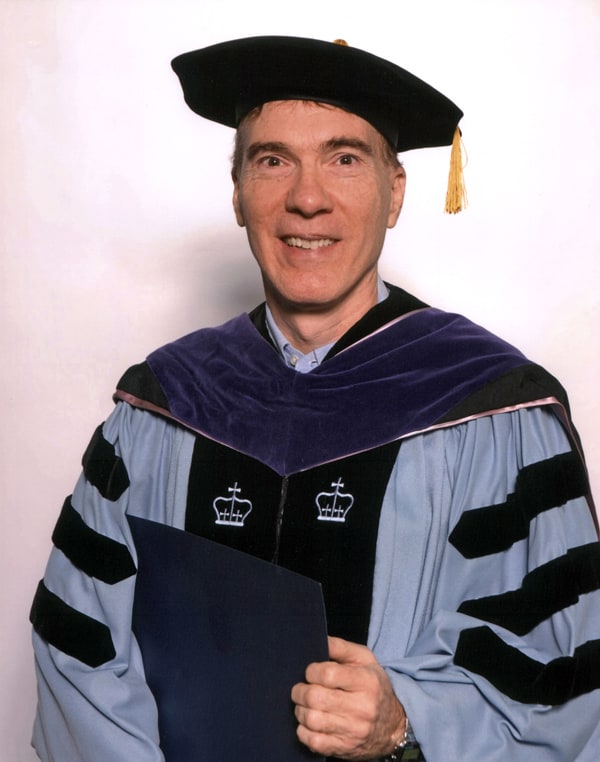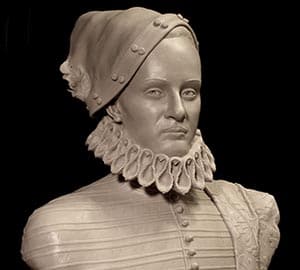SOF Celebrates Successful Online Symposium
Record Numbers Participate in Alternative to Annual Conference
The energy and excitement are still reverberating after the Shakespeare Oxford Fellowship’s first-ever online symposium, held Friday and Saturday, October 2–3, 2020. More than 300 people pre-registered for the event, which replaced the traditional annual conference due to the coronavirus pandemic. Hundreds of people viewed all or portions of it live. Full details about the speakers and their presentations are available here.

All three public sessions of this Shakespeare Authorship Symposium, as well as the individual presentations (some pre-recorded), are available on the SOF YouTube channel. They have racked up thousands of views already. Even after a two-hour opening session on Friday and sessions lasting all day Saturday, many registrants were still eager for more. About 50 joined a follow-up Zoom discussion on Sunday morning, October 4.
The symposium was dedicated to the memory of past SOF President Tom Regnier and featured a memorial video reflecting on his life and work as an Oxfordian.
The symposium honored James A. Warren as the 2020 Oxfordian of the Year and announced the winners of the 2020 “Who Wrote Shakespeare?” Video Contest. It also continued the SOF’s year-long centennial celebrations. Warren delivered a recorded lecture updating his research into J. Thomas Looney’s revolutionary 1920 book that launched the modern Oxfordian movement.

One of the live presentations was by Master of Ceremonies Steven Sabel about “The Mentors to Genius.” The Stratfordian legends about Shakespeare depict him as a natural genius who sprang mysteriously from nowhere. But Sabel showed that real-life geniuses, such as Mozart and Einstein, invariably reflect and benefit from the mentors, education, and life experiences that nurtured their brilliance. As Sabel discussed in a fascinating lecture, we actually know quite a lot about the mentors to the genius of Edward de Vere, Earl of Oxford, the likely true author of the “Shakespeare” canon.
Additional live lectures were presented by Earl Showerman on the centuries-long interaction between Shakespeare and politics (and politicians), by Mark André Alexander on how the human mind spins reality and creates blind spots to the truth, and by Katherine Chiljan on a possible real-life model for Lord Prospero of The Tempest, a Milanese aristocrat dedicated to scholarship and the arts. Recorded presentations, in addition to Warren’s, were contributed by Cheryl Eagan-Donovan, Sky Gilbert, Bryan H. Wildenthal, and Donald Ostrowski, a distinguished historian who lectures at Harvard University’s Extension School. Ostrowski’s new book — Who Wrote That? — is a major new development in the broader scholarly study of authorship attribution.
The only change in the planned schedule was that an unexpected family obligation prevented Ramon Jiménez and Joan Leon from appearing. Steven Sabel and Earl Showerman conducted a live discussion of Jiménez’s work on the authorship question in a special video episode of the SOF podcast series “Don’t Quill the Messenger,” which Sabel hosts.
The symposium was produced by Steven Sabel, Earl Showerman, and Dragon Wagon podcast producer Jake Lloyd. SOF Trustee and co-host Ben August generously provided the production venue.
As a recent news update about the symposium noted: “SOF members and friends will miss deeply the chance to meet and mingle in person as we usually do at our autumn conferences. But the online format turns out to have some compensatory advantages. Never in modern memory have so many people registered to participate in any SOF conference or symposium.”
[published Oct. 12, 2020, updated Dec. 2020]
Membership dues cover only a fraction of our budget, including all our research, preservation and programming. Please support the SOF by making a gift today!
Blue Boar Tavern: Wassail Q&A
Tuesday Dec. 17, 8pm E / 5pm P
Sign up below for event invites!
